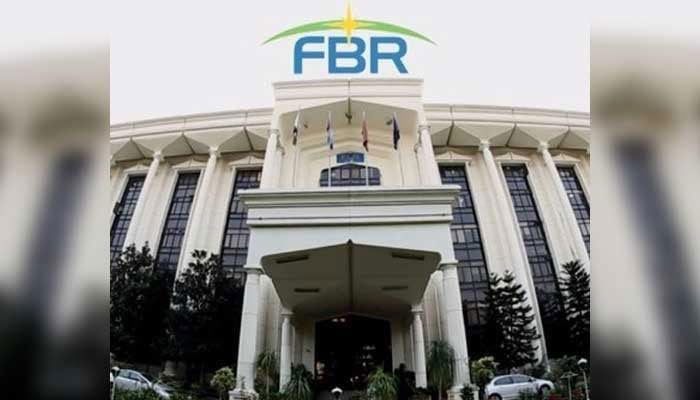FBR bid to avoid possible tax shortfall: Freezing of tax evaders’ bank accounts among steps proposed
FBR has proposed that if tax dodgers were under filers up to tune of Rs1 million or more
ISLAMABAD: The Federal Board of Revenue (FBR) has proposed drastic taxation measures against millions of tax-evaders including freezing their bank accounts, slapping a ban on their purchase of properties, vehicles and disconnection of electricity and gas connections.
In the wake of an apparent massive tax shortfall in the first quarter (July-September) under the IMF programme of $7 billion Extended Fund Facility (EFF), the FBR has prepared drastic measures after failing to bring 3.2 million retailers into the tax net.
Top official sources confirmed to The News on Wednesday that the FBR identified two million nil filers out of the total of six million return filers. The FBR has proposed to categorise the non-filers into three categories and recommended to the government to slap a fine of Rs1 million for incorrect/incomplete filed returns. These harsh measures could only be implemented through a mini-budget with the assent of parliament. The government will have to lay a money bill for amending the tax laws or promulgate an ordinance for granting sweeping powers to the tax machinery.
Regarding three categories proposed by the FBR, the official said that the ‘nil filers’ would have to face severe action from the FBR including freezing of their bank accounts and a ban on the purchase of properties or vehicles with an immediate effect. Those evading payment of tax amounts ranging from Rs0.5 million to Rs1 million will face disconnection of electricity and gas connections. The FBR had also ordered the disconnection of mobile phones of 0.5 million non-filers, but it could not achieve the desired results.
In the third category, the FBR has proposed that if the tax dodgers were under filers up to the tune of Rs1 million or more, the FBR would also propose some more measures against them.
The tax machinery proposed a set of policy changes focusing on those submitting inaccurate tax returns. These would apply across the board, including to Tier 1 retailers and manufacturers, and cover both Sales Tax and Income Tax. For increased transparency, the FBR proposed involving third-party monitoring for all those filing incorrect or incomplete returns. The FBR will also use artificial intelligence and money-laundering-assisted immediate and complete audits for them.
According to official sources, an internal assessment of the FBR has shown a tax shortfall of over Rs220 billion for the first quarter (July-September) against the agreed target of Rs2,652 billion. The annual tax collection target of FBR envisaged Rs12,970 billion, which was approved by parliament (Rs12,913 billion), and agreed with the IMF for the current fiscal year.
The FBR had faced a shortfall of Rs98 billion in August 2024. The FBR had collected Rs1,456 billion in the first two months (July and August) against the assigned target of Rs1,554 billion. Now the FBR is facing a challenging task to fetch Rs1,196 billion during the ongoing month (September) to materialise the first quarter agreed target with the IMF.
In case of tax shortfall, the IMF might ask for additional tax measures through a mini-budget. The aforementioned harsh measures have been proposed through the mini-budget instead of further burdening the existing taxpayers. There is no other choice but to penalise those who refuse to pay taxes.
-
 James Van Der Beek's Final Conversation With Director Roger Avary Laid Bare: 'We Cried'
James Van Der Beek's Final Conversation With Director Roger Avary Laid Bare: 'We Cried' -
 Jaden Smith Walks Out Of Interview After Kanye West Question At Film Premiere
Jaden Smith Walks Out Of Interview After Kanye West Question At Film Premiere -
 Michelle Obama Gets Candid About Spontaneous Decision At Piercings Tattoo
Michelle Obama Gets Candid About Spontaneous Decision At Piercings Tattoo -
 Why Halle Berry Wasn't Ready For Marriage After Van Hunt Popped Question? Source
Why Halle Berry Wasn't Ready For Marriage After Van Hunt Popped Question? Source -
 Bunnie Xo Shares Raw Confession After Year-long IVF Struggle
Bunnie Xo Shares Raw Confession After Year-long IVF Struggle -
 Brooks Nader Reveals Why She Quit Fillers After Years
Brooks Nader Reveals Why She Quit Fillers After Years -
 Travis Kelce Plays Key Role In Taylor Swift's 'Opalite' Remix
Travis Kelce Plays Key Role In Taylor Swift's 'Opalite' Remix -
 How Jennifer Aniston's 57th Birthday Went With Boyfriend Jim Curtis
How Jennifer Aniston's 57th Birthday Went With Boyfriend Jim Curtis -
 JoJo Siwa Shares Inspiring Words With Young Changemakers
JoJo Siwa Shares Inspiring Words With Young Changemakers -
 James Van Der Beek Loved Ones Breaks Silence After Fundraiser Hits $2.2M
James Van Der Beek Loved Ones Breaks Silence After Fundraiser Hits $2.2M -
 Disney’s $336m 'Snow White' Remake Ends With $170m Box Office Loss: Report
Disney’s $336m 'Snow White' Remake Ends With $170m Box Office Loss: Report -
 Travis Kelce's Mom Donna Kelce Breaks Silence On His Retirement Plans
Travis Kelce's Mom Donna Kelce Breaks Silence On His Retirement Plans -
 Premiere Date Of 'Spider-Noir' Featuring Nicolas Cage Announced
Premiere Date Of 'Spider-Noir' Featuring Nicolas Cage Announced -
 Pedro Pascal's Sister Reveals His Reaction To Her 'The Beauty' Role
Pedro Pascal's Sister Reveals His Reaction To Her 'The Beauty' Role -
 Kate Middleton Proves She's True 'children's Princess' With THIS Move
Kate Middleton Proves She's True 'children's Princess' With THIS Move -
 Paul Anka Reveals How He Raised Son Ethan Differently From His Daughters
Paul Anka Reveals How He Raised Son Ethan Differently From His Daughters




